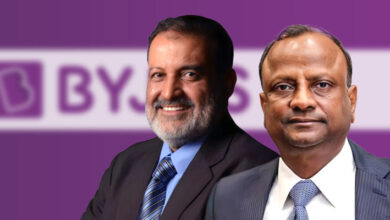Employees of India Inc clutch to WFH as they prepare to return to work in 2022

Employees of India Inc clutch to WFH as they prepare to return to work
Synopsis
At least six out of 10 people who took part in a survey by CIEL HR Services said they were willing to quit their jobs rather than go back to work or the office. According to the findings, most people would turn down an appointment with a higher salary if it required them to come to work every day.

Many people say they would instead work from home than get a raise. They’re even willing to leave their jobs if that option is removed.
At least six out of 10 people who took part in a survey by CIEL HR Services said they were willing to quit their jobs rather than go back to work or the office.
According to a survey that ET got a copy of, almost the same number of people would turn down an offer for a higher-paying job if it required them to come to work every day. This view is widespread if you look at industries like IT and outsourcing and tech startups and consulting and BFSI and business-enabling functions across all sectors.
For many people, working from home or other places has allowed them to have a better work-life balance, and they want it to keep going. WFH and flexible work must be offered at least as options for companies to retain and attract workers, say job market experts. Companies are slowly reopening their offices, but they need to provide these options at least to keep and attract workers, they say.

“WFH should be part of a strategy to get back to work,” said Aditya Misra, the CEO of CIEL HR, which had close to 2,000 employees from 620 companies take part in the study.
An IT staffing company said that six out of 10 job interviews were about work-from-home options. Kamal Karanth, CEO of Xpheno, says that many employers are happy to hire people who work from home for two years because of the experience and rewards that come with it and the fact that there is a lot of hiring going on.
“The experience and rewards of a two-year WFH ecosystem, added to the hiring buoyancy in play, have made this choice popular and is a deal-clincher for many employers.”
— Kamal Karanth of Xpheno
Option to work from home
Many companies that started working from home during the pandemic plan to keep it at least as an option. 40% of the 620 companies in the CIEL survey work entirely from home, and 26% work in a mixed-mode. Employees at the rest of the companies work from home.
During the pandemic, employees at Tata Steel, which started an “Agile Working Models” policy to give them more flexibility, plan to keep it going. Absolute WFH: This policy allows employees to work from any location in India. Flexi WFH: This policy will enable employees to work from home for as many days in a year as they want.
About 30% of Tata Steel’s white-collar employees are working from home now, and about 5% of them have the option to work anywhere. This has freed up office space in some places, says a Tata Steel spokesperson.
Tata Consultancy Services, an IT company, is moving to a hybrid work style.

No more than 25% of TCS employees need to work from home at any given time, and they need to spend no more than 25% of their time at work.
Mercedes-Benz India has 50 percent of its non-production staff on-site with a roster system. The company’s CEO, Martin Schwenk, said that.
One of the big companies that have recently opened its place of business is KPMG. This year, it will start using a hybrid working model. A partner at KPMG in India, Sunit Sinha, says that some employees will be able to work from home, but they will still be able to travel or meet with clients in person.
There is already a rival to Deloitte who has begun working in a mixed-mode.
SV Nathan, a partner, and chief talent officer, said that the hybrid working model is likely to stay around for at least the short term because it is “the best of both worlds.” “It’s hard to predict very far into the future because of how quickly things change,” he said.
edited and proofread by nikita sharma




